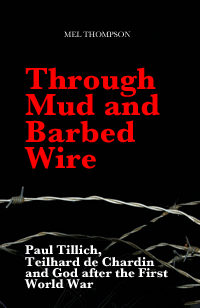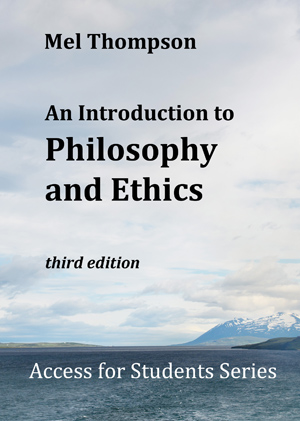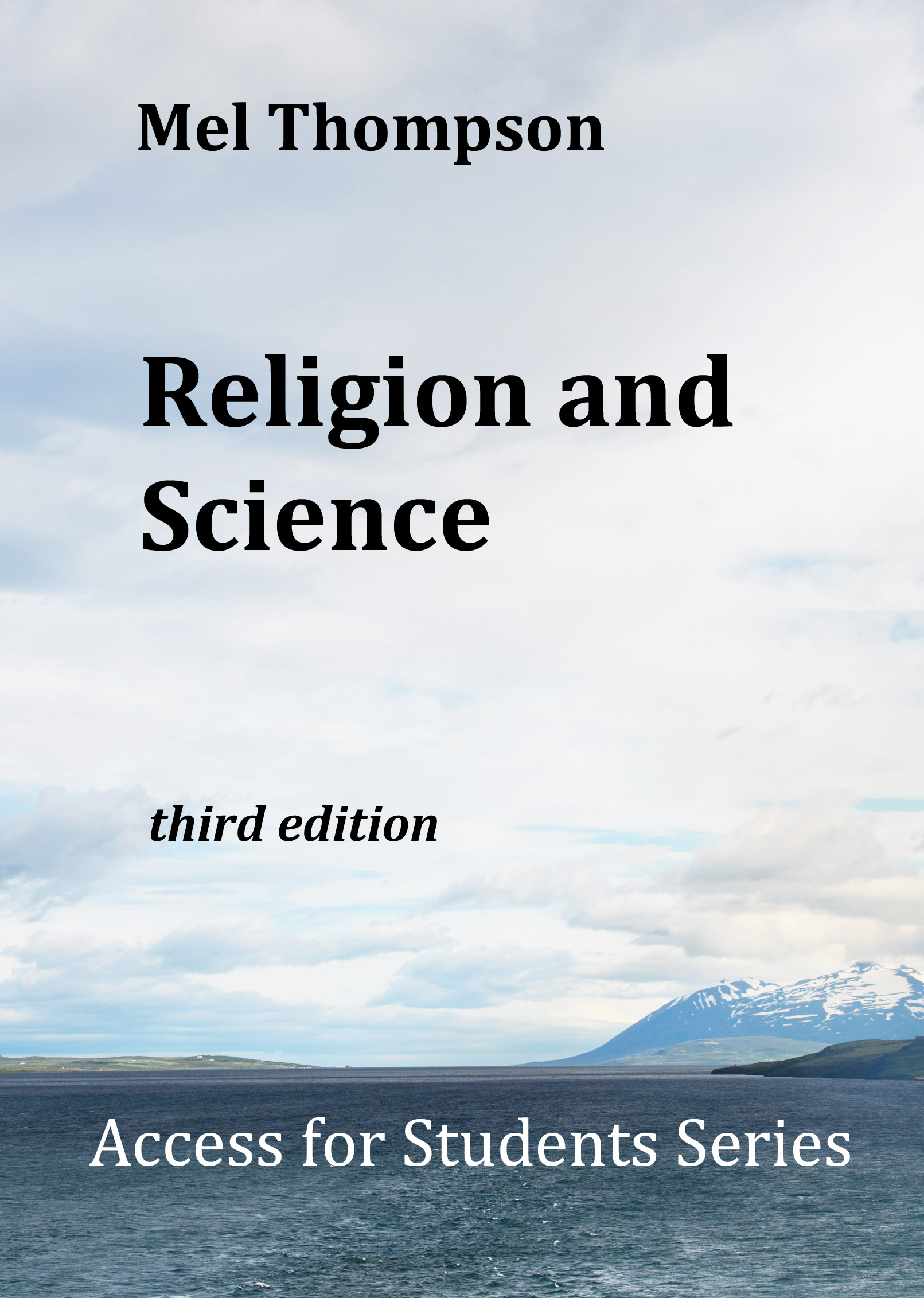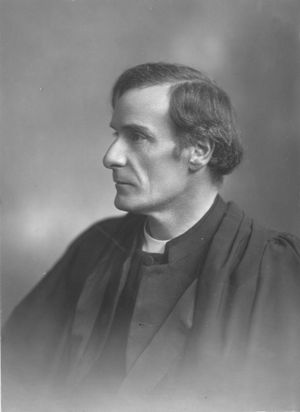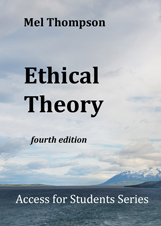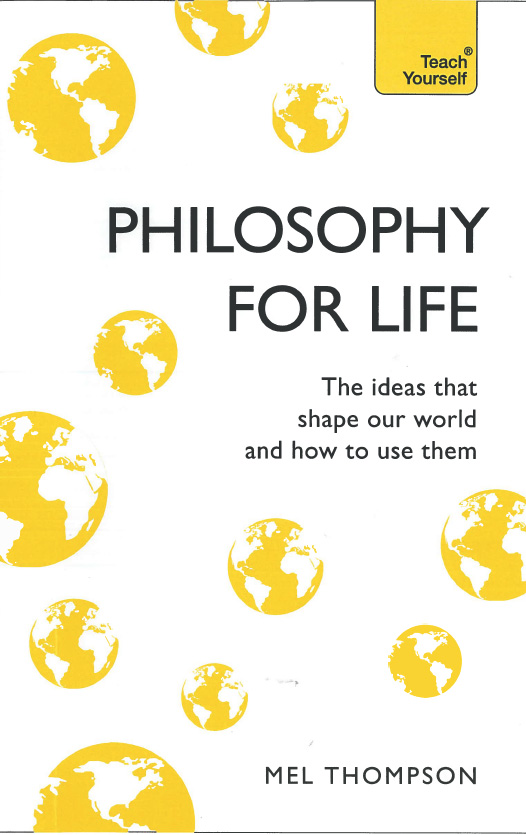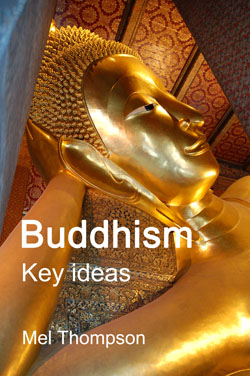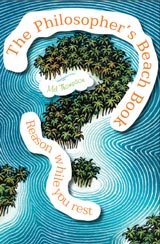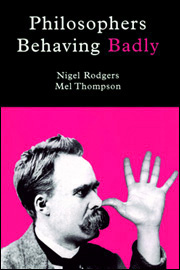Additional note...
Hawking, Hertog and the Origin of Time
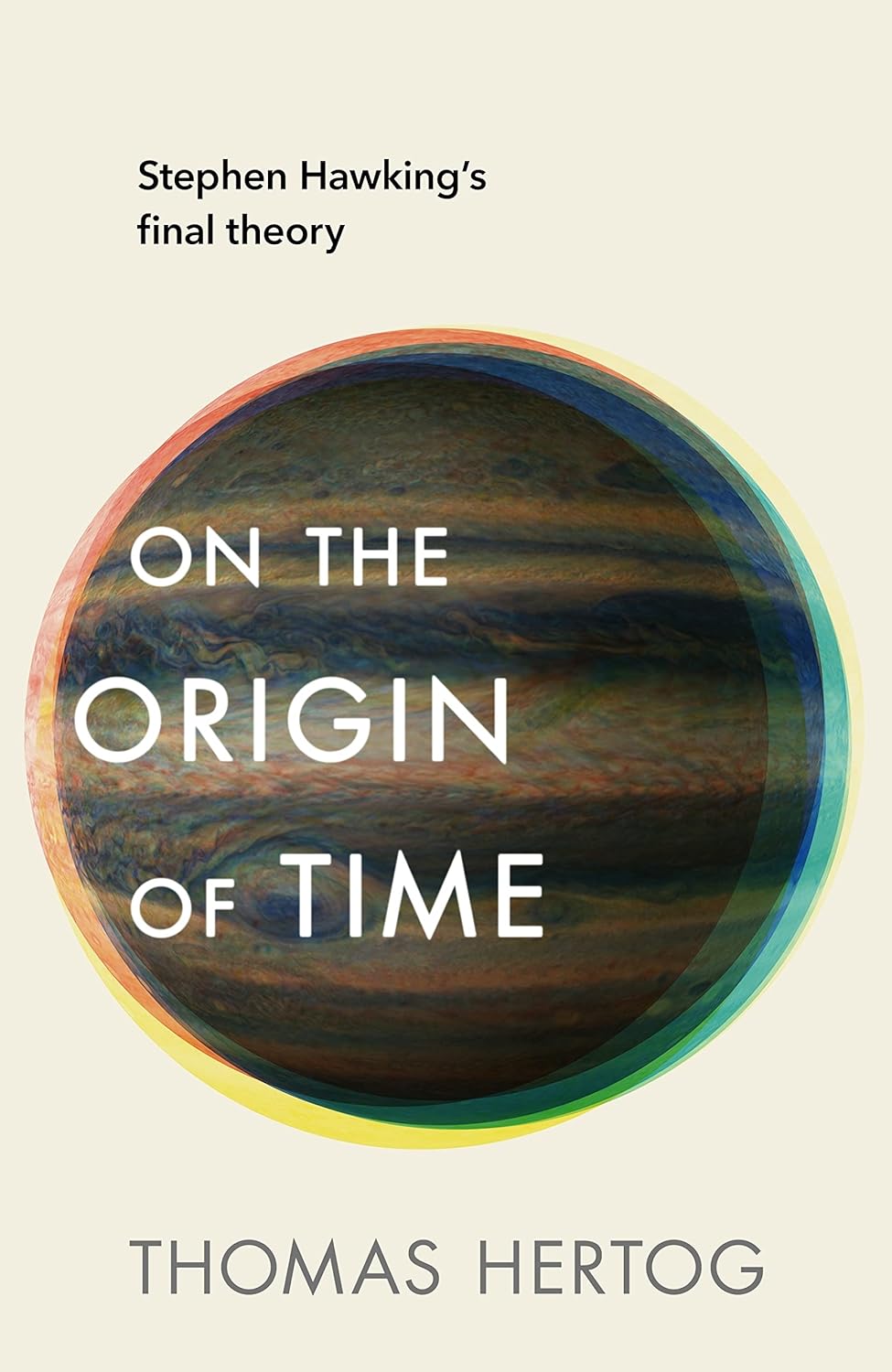 The original 'Notes for Students' on the Anthropic Principle and Argument - set out below - are a reflection on whether or not you can use an anthropic argument to demonstrate the existence of God. But a form of anthropic argument gave shape to Stephen Hawking's final cosmologiocal theory, as described in Thomas Hertog's book On the Origin of Time (2023). This is fascinating for both the Philosophy of Science and Philosophy of Religion. My comments on it are to be found here.
The original 'Notes for Students' on the Anthropic Principle and Argument - set out below - are a reflection on whether or not you can use an anthropic argument to demonstrate the existence of God. But a form of anthropic argument gave shape to Stephen Hawking's final cosmologiocal theory, as described in Thomas Hertog's book On the Origin of Time (2023). This is fascinating for both the Philosophy of Science and Philosophy of Religion. My comments on it are to be found here.
The Anthropic Principle and Argument
Contents
Introduction
The cosmological arguments started with the fact of the world’s existence, and from it argued (mainly on the basis of Aristotle’s idea of causality) for an uncaused cause, an unmoved mover, something necessary as opposed to contingent – a creator god. Then the design argument went beyond this to argue that, not just the fact of the world’s existence, but the way in which it displays elements of intention and design, suggests a designer god. Now, with physics revealing the fundamental constants that underpin our universe, there has developed another approach – the Anthropic Argument.
The notes that follow show how the Anthropic Principle – which is not in itself a religious idea, but a way of checking the range of possible values for the cosmological constants – has sometimes been used as the basis for an argument for the existence of God, an argument that builds on ideas found in both the cosmological and design arguments, particularly the latter.
In brief, the Anthropic Principle points out that the structure of the universe is determined by the fundamental physical constants, and the balance between them. Take the Gravitational Constant. To put it simply, if gravity were a fraction less powerful than it is, the universe would have expanded outwards in a way that would have prevented the formation of galaxies. If a little more, it would have collapsed back in upon itself without having got to this point. The whole nature of the universe, with physical matter arranged in galaxies, stars and planets depends on certain physical properties that emerged the first milliseconds of its existence, and without which it could not have achieved its present form.
Clearly, if the fundamental constants had been any different from what they are, we would not be here. So, even though our present knowledge of the universe may be limited, we certainly know this – that it is a universe within which intelligent human life can arise. In other words, the properties of the universe are self-selected by the fact that we are here to observe it. If the universe were different, we wouldn’t be here; but we are here, so it wasn’t different.
So let us look at how this might be used as an argument for the existence of God…
The ‘weak’ form of the argument
The most obvious – and sensible – response to this, in religious terms, is one of wonder at how well the universe is ‘fine tuned’ to meet our needs. The universal porridge is neither too hot nor too cold but ‘just right.’ Considering the variety of environments within it, and the very fragile nature of the biosphere around this planet within which we live, it is amazing that we exist at all. Given all the things that could be different in the universe, the chances of intelligent human life developing on this planet seem infinitely small. But we are here and, in Buddhist terms, we are aware of ourselves as totally dependent on all the causes and conditions that have brought us about.
So, from a theistic perspective, the ‘weak’ form of the argument simply points out that, if the universe had not started off in the way it did, we would not be here. We are here, so we can see providential design at work. If God is the creator, then we celebrate the fact that he constructed a world capable of accommodating us.
But, in terms of arguing for God’s existence, the weak form does not really get us far. After all, it simply points out that the existing early constants were exactly right to allow our universe to develop; but that could be down to luck as much as to divine providence. Also, following an argument developed by Hume, we have no idea whether this universe was created after a string of failures – not by systematic design, but just by virtue of endless trials. If the constants were any different, no universe would have developed, so among the infinite number of possibilities, ours just happened to come up trumps. From our point of view, this is absolutely important, but from the standpoint of the universe (or perhaps an infinite number of universes) we are so utterly trivial as to make no difference whatsoever.
The weak version of the Anthropic Argument rather reminds me of the children’s song:
‘We’re here because we not there, because we’re not there because we’re here.’
Absolutely true and absolutely vacuous! It’s sensible, obvious, logical and gives absolutely no possibility of getting beyond the universe to demonstrate an independent creator. The universe you observe is the one that permits you to exist and observe it; and that’s all!
The ‘strong’ form of the argument
Don’t imagine that, by calling this version of the argument ‘strong’, I imply that it is any more sensible, logical or convincing than the ‘weak’ form – quite the opposite!
‘Strong’ versions of the argument claim that the universe must have been such as to make it inevitable that intelligent human observers would have been created within it at some stage. (See, for example Brandon Carter, 1974 ???). In other words, the universe could not have failed to be life-creating.
In religious terms, the key feature of this is to give humankind an absolutely inevitable place within the universe, and it therefore suggests that the creator designed the world specifically in order to produce us. That’s in line with most Western theistic views, but not with Eastern thought. It might be very comforting to think of the whole world being there in order to build us a home, but how valid can this ‘strong’ form be as an argument? We need to start by looking at the word ‘must.’
Must
Let’s take a couple of obvious examples of the ambiguity in the use of ‘must.’
‘If you were here on time you must have caught the 8 o’clock train.’
This is, of course, absolutely true; if you didn’t catch it, you wouldn’t be here. But that does not imply that you had to catch it. Your presence just illustrates the sequence of causes that brought you to this place at this time. The world could have carried on quite well without you being here – you’d simply be somewhere else, or still travelling.
Or take an even more obvious example:
‘In order for you to exist, your parents must have had sex at least once.’
But that does not imply that they were forced to have sex.
Clearly, there are two very different ways in which we use ‘must’. As a command or moral injunction, it indicates what needs to be done in order to obey a principle or achieve an already-chosen result. ‘You must remain silent while in the library’ is the first sort, ‘You must train hard if you want to win the race’ is the second. On the other hand, it can simply indicate a necessary deduction from established facts: ‘His DNA is on the knife, so he must have been the murderer.’
The key question therefore: In which of these senses should we understand the ‘must’ in the strong version of the Anthropic Argument?
Of course, the ‘weak’ form simply uses a logical deduction; our existence depends upon there having been certain physical constants within the early universe. So it is the equivalent of the DNA on the knife. The ‘strong’ form suggests that those constants were established in order to achieve a pre-intended result, namely the production within the universe of humankind – just as training is necessary in order to win at sport. Nobody would argue with the first of these, but is the second necessitated by the facts? Is there anything that requires us to shift from the ‘must’ of logical deduction to the ‘must’ of morality or intention? I would suggest that it is not, but that it is more likely that seeing the ‘must’ as a sign of the intention of a creator god is a projection of religious ideas upon the universe – it is an idea that fits what a religious person claims to know (after all, if we knew of the existence of God independently of this argument, then we might well expect him to design a universe with a viable set of physical constants) but it is not a belief that is a necessary conclusion to draw from it.
Trivial but important
We need to explore evidence for past events in order to explain the present – that’s what the Anthropic Principle is about – looking at the whole range of options in the past, some are self-selected by the fact that the world is as it is today, with us in it.
But, if the universe were different, it wouldn’t be our universe. How do we know that this is not just one of billions of universes? We happen to be in it, because we happen to be a product of just exactly this kind of universe.
Just as you happen to be you because of a unique genetic code from your parents. But you could easily have been the product of different parents.
The Anthropic Principle does not prove that there is any external or prior cause to the universe. The most it can show is that the universe is as it is. And because it is as it is, we are as we are.
Seen in that way, the Anthropic Argument is trivial – it achieves little, and certainly it cannot prove the existence of anything resembling the God of theism.
But it is important, because it presents us with a situation that may be interpreted as profoundly religious. We are contingent beings, here for a short while, vulnerable to disease, accidents, ageing, death. And yet – from the Anthropic perspective – each of us has as much a right to be here as does the planet Jupiter. We are part of the universe, utterly unlikely, utterly fragile, and yet a product of all the causes and conditions that have prevailed since the start of the universe. It is the world, exactly as it is, that gives us our precarious life.
Two responses to that reflect the two forms of the Anthropic Argument:
Either you take the rather arrogant view that the whole world has been formed for the benefit of humankind – all designed especially for you. Comforting, perhaps, but leading to a denigration of the value of all other species, perhaps of the planet itself. A ‘We are God’s chosen’ attitude that can cause mayhem. That corresponds to the ‘strong’ Anthropic view – that the whole world is designed in order to create humankind. I’m not saying that such a negative and anthropocentric view is an inevitable response, but it is a danger inherent in the ‘strong’ version of the Anthropic Argument.
Or you take the view that everything is exactly as it is, and you have your unique part to play in it. You have a right to be here, but the universe does not owe you a living. Like everything else, on this planet and elsewhere, you are the product of causes and conditions that are quite outside your control. And yet the world is such that it gives sentient beings a unique opportunity. In the Tibetan Wheel of Life, the human realm is the one that gives those in it an opportunity to move towards wisdom. We are amazed to find that we are here, and that the universe – strange, vast and violent as it is – provides an environment within which we can live. The 19th century theologian Schleiermacher described religion as a ‘sense and taste for the infinite’ – and that’s what the ‘weak’ form of the Anthropic Argument can encourage.
A moral danger….
I sense that the strong form of this argument can be dangerous in terms of our moral responsibility for maintaining the environment and concern for future generations. If you believe that God controls everything and has designed the world in order to enable human beings to flourish, you are not going to take seriously the view that, by exploiting and polluting the environment, the human race might destroy itself and be replaced on this planet by some other species. Hence, exploitation of the earths resources and other species may be justified on the basis that God has given humankind authority over everything else in creation – justified by biblical references but backed up by a ‘strong’ anthropic interpretation of the universe.
By contrast, the inoffensive ‘weak’ version might at least promote a respect for the fragile and infinitely unlikely but beneficial environment in which we find ourselves.
My personal view
Like the other arguments for the existence of God, the Anthropic Argument is bound to fail if you assume that ‘God exists’ or ‘God does not exist’ are the two possible conclusions, one of which must the right an the other wrong. That could only work if your view of ‘God’ is a rather crude deism – an external creator who sets the universal mechanism going – and, even then, there is no necessary step in the argument to take you from an appropriate set of constants to a separate creator. Luck, chance and the infinite rolling of the dice could produce the same result.
Not much is gained by moderating this by saying that the anthropic argument makes a creator god more likely. Fair enough, this doesn't claim proof, but it still presents God as a possibility - and that, in my view, is disasterous for an appreciation of that to which the word 'God' might point.
However, as outlined in the last two sections, the Anthropic Argument is a good way of reflecting on the relationship between the individual and the universe (and, by implication, the natural environment on this planet) – a relationship that nurtures the sense of wonder and responsibility that reflects the best in religious experience.
Return to: Contents, 'Notes' page, or Home page
© Mel Thompson 2015
 Hawking, Hertog and the Origin of Time
Hawking, Hertog and the Origin of Time
In my original notes on the Anthropic Argument, produced 8 years ago and given above, my conclusion was that, in its 'weak' form it really told us very little, and in its 'strong' form is assumed that the whole universe was defined by the need to produce humankind, which seemed both anthropocentric and fanciful. Hertog's new book, however - in explaining the cosmology that was developed in his collaboration with Stephen Hawking - throws an entirely new light on the significance of anthropic thinking.
The return of the anthropic
With the publication in 2023 of Thomas Hertog’s book On the Origin of Time, in which he summarises Stephen Hawking’s final cosmological theory, on which they worked together, the idea of an anthropic argument has returned with a vengeance – not just to cosmology but also to the ideas of atheism and God.
I cannot pretend to give an adequate summary of Hertog’s work, for it is a seriously challenging book, even though written in an accessible style, but his main theme seems clear enough, and changes so much in recent cosmology.
What Hawking and Hertog developed was a ‘top down’ approach to cosmology, starting with the fact that we are here to observe the universe – which is what makes their theory ‘anthropic’. They argue that all our observations and theories are based on the fact that we are in the universe and part of it. We can never stand outside it, providing a single theory that explains why it is as it is.
The first casualty of this is the so-called ‘multiverse’. Quantum events provide us with different possibilities, but that does not mean that there is a separate universe for each of these, because one possibility, taken forward, eliminates others. We do not stand outside, observing an infinite number of possible universes, but inside, observing a universe that evolves as it goes on. There can be no ultimate ‘objectivity’, because that would require an observer to stand outside the universe.
Newton claimed to present a set of laws by which the universe worked, and thought that God has established those laws. Hence, the appeal of deism – the view that there was a creator god, outside the universe, who set it in motion but who was not actively engaged within it. It was parallel to the idea of a pure, Platonic form that might explain everything. Hence much science has been concerned to eliminate the variables that make each event unique, and construct experiments that might yield some generalised law – and that applies to philosophy’s ‘thought experiments’ as much as those in the lab. But there are limits to what this can show. Ask what happened ‘before’ the big bang, for example, and you hit one of the impossible questions for this approach. To answer it would require a perspective from outside the world, a perspective we can never have.
The danger, whether in science, cosmology or theology, is the attempt to ‘objectivise’ the world or God. That can only be possible if you can get outside it and view it as a whole. That applies to God as much as to the world, for if (as theism claims) God is within you, how can he be objectivised? It also tends to drive a wedge between ourselves and our world, which becomes something ‘out there’ for us to wonder about, while God becomes an external reality about whose existence we might have a debate.
Actually, as Hertog comments on page 252 of his book, following ideas developed by Hannah Arendt, we need to see the world as a home, not as an object – an idea explored in my own book Home: a philosophy of personal space. We need to get free from Plato’s straightjacket and Newton’s impossible viewpoint. We need to ask how it is that the world, in which we find ourselves, has developed to this point. For Hertog and Hawking, the answer lies in the ability of quantum theory to see the branching of possibilities and hence the evolutionary development of the laws of physics, as they relate to the world. In a key passage he says:
Our top-down perspective reverses the hierarchy between laws and reality in physics. It leads to a new philosophy of physics that rejects the idea that the universe is a machine governed by unconditional laws with a prior existence and replaces it with the view that the universe is a kind of self-organising entity, in which all sorts of emergent patterns appear, the most general of which we call the laws of physics. One might say that in top-down cosmology, the laws serve the universe, not the universe the laws. The theory holds that if there is an answer to the great question of existence, it is to be found within this world, not in a structure of absolutes beyond it. (page 258)
How does this relate to atheism and God? Atheism argues that there is no literal or physical god in the world. Well, of course, but no surprise there because it is a view also shared by theism, which rejects any such idea as being mistaken at best, or idolatry at worst. But that says more about the parameters of modern atheism and of the earlier science upon which it is largely based. It says that no god is needed, because everything can, in theory, be explained by reason and evidence. But that claim itself cannot be justified by reason and evidence, but is based on the Newtonian assumption that the universe is rational, controlled by universal laws. And God? Well, the ‘hybrid’ God that has dominated so much religious thinking since the Enlightenment (in brief, deism with a personal touch), is also wedded to the ‘external’ perspective of earlier metaphysics and becomes untenable.
If we cannot get an external, ‘objective’ view of the universe, then the intellectual basis of both theism and atheism are undermined. They become two sides of the same coin – the one says that the world is controlled by rational laws, so it needs no god, the other that God is the name we give to the foundation of such laws, as the uncaused cause and so on.
The whole scientific and Enlightenment culture since the 18th century has become a curse as far as theology is concerned. It invites us to look for God in a place that is logically and practically unavailable to us – there is no possible perspective that makes that God literally possible. Whatever the term ‘god’ can mean – especially if it is described in terms of our understanding of life as a whole, seen from a personal perspective – it just has to refer to that within which we ‘live, move and have our being’. What does it mean to engage personally with the developing world around us? This question, which makes perfect sense within the context of a ‘top down’ cosmology, avoids the limitations of either a superficial and impersonal atheism, or the literal and impossible claims about God.
With Hawking’s final theory, cosmology shifts, enabling us to avoid the impossible, external viewpoint of both atheism and theism, and gives us a new focus – to ask about the way the world is developing around us, and our place within it. And that, I suggest, is infinitely more important that quibbles about external entities that might or might not exist.
Mel Thompson
October 2023
(This is a first draft of a section for my new book 'Atheism, Culture and God', which is due to be published in 2024.)


